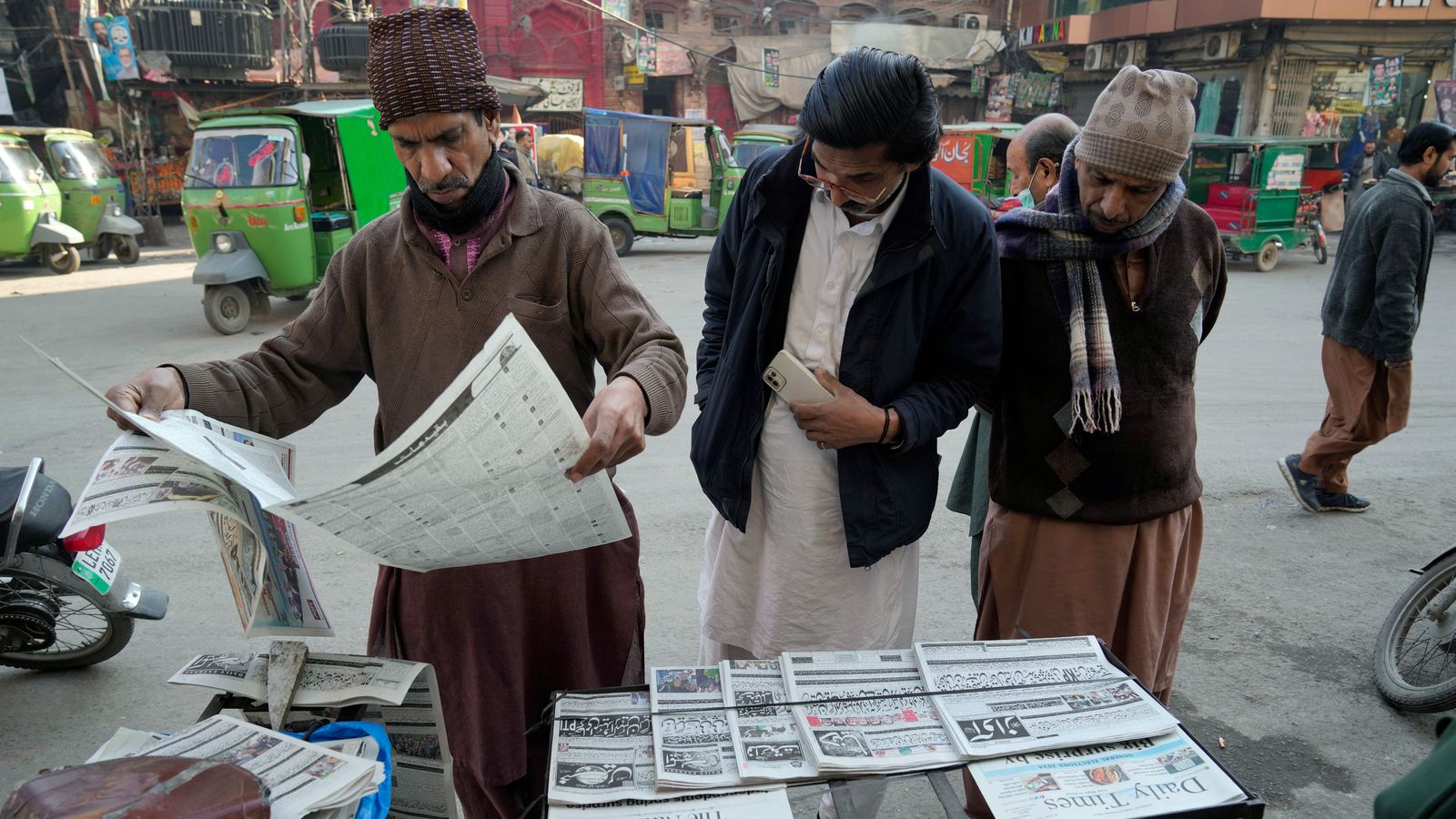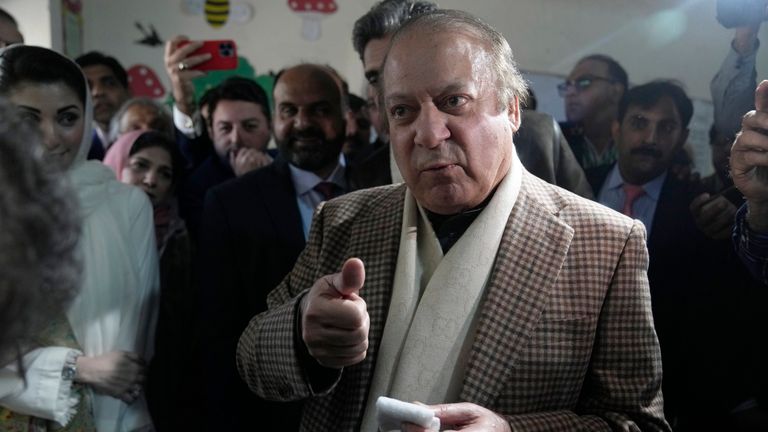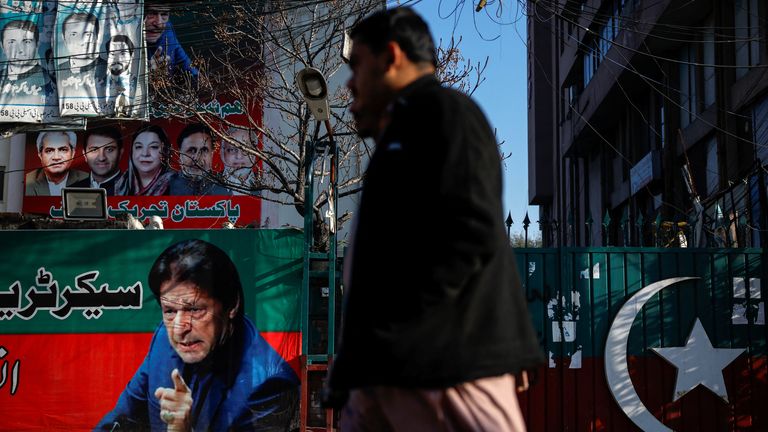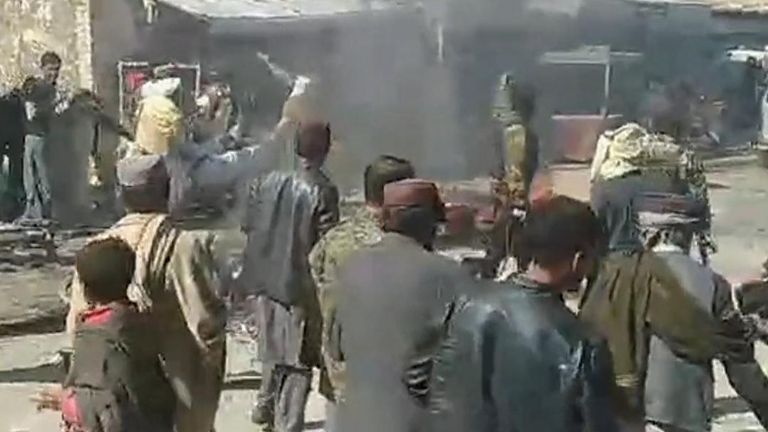Former Pakistan prime minister Nawaz Sharif’s party is slightly ahead in early election results, after vote counts were hit by delays following a mobile phone shutdown.
Early on Friday, the Election Commission of Pakistan (ECP) had announced 47 results for the 265 contested seats in the National Assembly.
Mr Sharif’s Pakistan Muslim League (PML) has secured 17 and supporters of jailed former prime minister Imran Khan 14.
Twelve seats were taken by the Pakistan Peoples Party of Bilawal Bhutto Zardari, the son of assassinated premier Benazir Bhutto, it said.
The rest were won by small parties or non-aligned independents.
However, local media have put supporters of Mr Khan slightly ahead.
Mr Khan is in prison and his Pakistan Tehreek-e-Insaf (PTI) party was barred from Thursday’s election, so his supporters stood as independents.
Analysts have predicted there may be no clear winner in the election, adding to the troubles of a country struggling to recover from an economic crisis while it wrestles with rising militant violence against a polarised political backdrop.
Karachi’s stock index and government-issued sovereign bonds fell as a result of the uncertainty.
Pakistan’s election explained: A prisoner, a kingmaker and an unexpected return
An “internet issue” caused the holdup in counting votes after polls closed, according to Zafar Iqbal of the ECP.
The government said it suspended mobile phone services ahead of the election on Thursday as a security measure, and they were being partially restored.
The main battle was expected to be between candidates backed by Mr Khan, whose PTI won the last national election, and the PML of Mr Sharif.
Mr Khan believes the country’s powerful military is behind a crackdown to harass his party out of existence, while analysts and opponents say Mr Sharif is being backed by the generals.
The armed forces has dominated the nuclear-armed nation either directly or indirectly in its 76 years of independence but in recent years has maintained it does not interfere in politics.
Mr Sharif, considered by many observers to be a strong candidate, dismissed talk of an unclear result.
He said: “Don’t talk about a coalition government. It is very important for a government to get a clear majority… it should not be relying on others.”
If the election does not result in a clear majority for anyone, as analysts are predicting, dealing with challenges facing the country could prove difficult.
These include seeking a new bailout programme from the International Monetary Fund (IMF) after the current arrangement expires in three weeks.
Thousands of troops were deployed on the streets and at polling stations across the country for the voting on Thursday.
Borders with Iran and Afghanistan were temporarily closed as security was stepped up.
Despite the heightened security, 12 people, including two children, were killed in 51 bomb blasts, grenade attacks and shootings by militants, mostly in the western provinces, the military said in a statement.
Caretaker interior minister Gohar Ejaz said: “Despite a few isolated incidents, the overall situation remained under control, demonstrating the effectiveness of our security measures.”
Washington was concerned about “steps that were taken to restrict freedom of expression, specifically around internet and cellphone use”, State Department deputy spokesperson Vedant Patel said.
The US strongly condemned election-related violence both in the run-up to the polls and on election day, he added.
United Nations secretary-general Antonio Guterres also expressed concern about the violence and the suspension of mobile phone services.
This story originally appeared on Skynews




